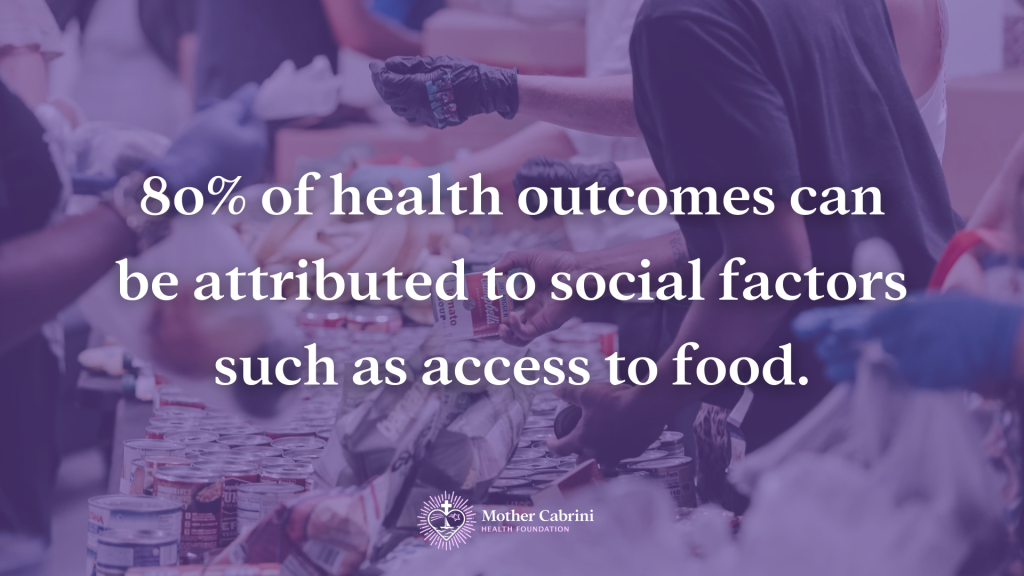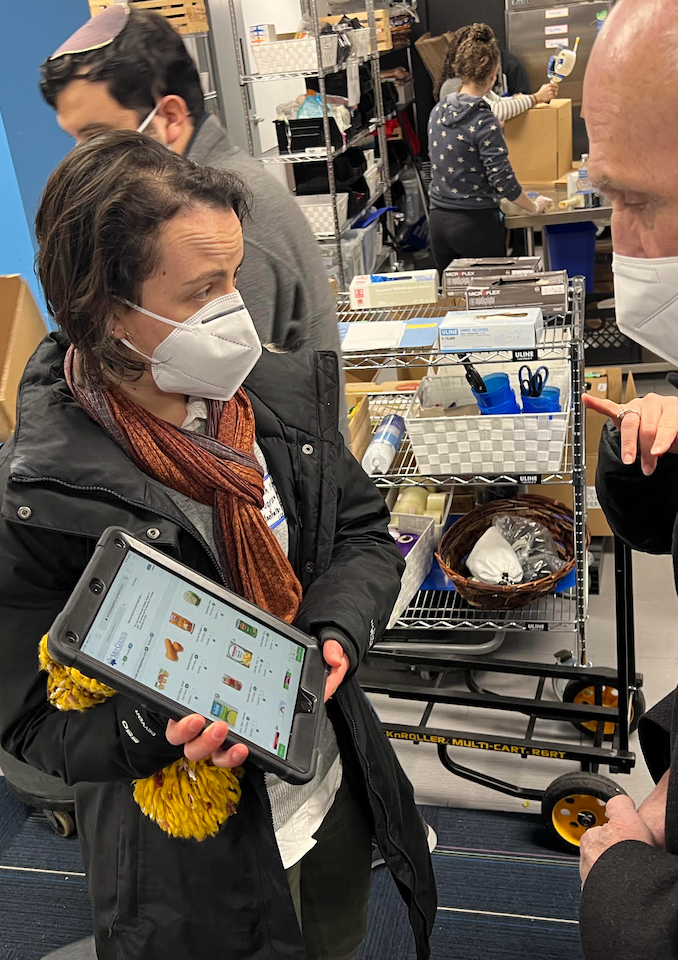Healthy Food for a Healthier New York
Expanding Access to Nutritious Food for Vulnerable New Yorkers
Over 2 million New Yorkers struggle with food insecurity, increasing likelihood of not only physical health issues, such as diabetes, high blood pressure, heart disease, and obesity, but also mental health issues. After a pandemic that severely exacerbated New York State’s hunger crisis, it is critical to mitigate the health disparities caused by food insecurity and ensure New Yorkers have consistent access to nutritious food.

In recognition of National Nutrition Month this March, the Foundation is highlighting six vital organizations increasing food access across New York State.
One such organization is the Food Bank of Central New York, which serves 11 counties in Central and Northern New York that experience a child food insecurity rate of 18.6%. Founded in 1985, the Food Bank’s services include mobile food pantries, home-delivered meals, and large-scale community food distribution events. Last year, they provided over 18 million meals to vulnerable communities addressing food disparity across Central New York.

In the New York City region, the Metropolitan Council on Jewish Poverty (Met Council) has provided immediate assistance for food insecurity and helped to create pathways to self-sufficiency for NYC residents for 50 years. Met Council provides comprehensive social services to empower nearly 305,000 low-income New Yorkers every year through benefits enrollment assistance and outreach, emergency social services, family violence services, affordable housing, access to the largest kosher food pantry system in the US, and safety and home repairs for seniors aging in place. By creating an online food ordering system and mobile delivery system, Met Council has recently expanded its ability to reach New Yorkers facing access barriers to traditional pantry resources.
Three other organizations, Northwell Health, Island Harvest, and Pronto of Long Island, are helping address food disparities across Long Island counties.
Northwell Health’s “Wellness on Wheels” uses a mobile van to provide elementary school children and their families with access to healthy, nutritious food, as well as educational programs on nutrition and physical fitness, and referrals to other supportive services. They recently reached over 5,000 children with a goal of reaching 10,000 over the next year.
Island Harvest Food Bank is Long Island’s largest food rescue and hunger prevention organization, supplementing more than 15 million meals last year by distributing more than 18 million pounds of healthy food and product for hundreds of thousands of Long Islanders in need. Island Harvest Food Bank also operates education, outreach, training, and advocacy initiatives designed to target the root causes of poverty and food insecurity and to help people transition from uncertainty to stability.
Pronto of Long Island has been supporting Long Island since 1969 by providing services such as a food pantry access, weekend food programs, senior food programs, case management, citizenship education classes, English as a Second Language classes, and a summer camp for school children.
Finally, in Buffalo, where 27% of residents live in poverty, the Society of St. Vincent de Paul (SVDP) has been serving low-income individuals for over a century with the largest meal site in Erie County. In addition, SVDP provides a food pantry and a discount store that offers donated clothing and goods to community members. 45% of diners at SVDP have an annual income of $20,000 or less, and in a city with such a high poverty rate, the work SVDP is doing to increase access to food is critical.
Across New York State, countless vulnerable communities do not have consistent access to nutritious food, resulting in worsened physical conditions and mental health outcomes. For decades, organizations such as the Food Bank of CNY, Met Council, Pronto, Island Harvest, Northwell Health, and SVDP have supported their local communities by providing access to nutritious food and other supportive social services, helping create a better, healthier New York.
To learn more about these local organizations or how you can support them, you can find their websites below:
